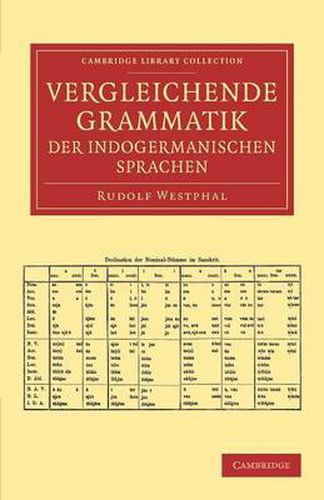Readings Newsletter
Become a Readings Member to make your shopping experience even easier.
Sign in or sign up for free!
You’re not far away from qualifying for FREE standard shipping within Australia
You’ve qualified for FREE standard shipping within Australia
The cart is loading…






Best remembered for his contribution to the study of Greek music and metre, the German classical philologist Rudolf Westphal (1826 92) had originally studied theology at the University of Marburg before turning his attention to comparative linguistics. He learnt Sanskrit and Arabic and took a keen interest in the Indo-Germanic (Indo-European) languages as well as Semitic grammar. In the late 1850s and early 1860s he joined his friend and fellow classical philologist August Rossbach (1823-98) at the University of Breslau (Wroclaw) and later taught at Moscow’s Imperial Lyceum. In this work, first published in 1873, Westphal provides the reader with an overview of the Indo-European languages and their sounds. He then gives an extensive account of Indo-European verbs by focusing on the roots derived from Latin and Sanskrit.
$9.00 standard shipping within Australia
FREE standard shipping within Australia for orders over $100.00
Express & International shipping calculated at checkout
Best remembered for his contribution to the study of Greek music and metre, the German classical philologist Rudolf Westphal (1826 92) had originally studied theology at the University of Marburg before turning his attention to comparative linguistics. He learnt Sanskrit and Arabic and took a keen interest in the Indo-Germanic (Indo-European) languages as well as Semitic grammar. In the late 1850s and early 1860s he joined his friend and fellow classical philologist August Rossbach (1823-98) at the University of Breslau (Wroclaw) and later taught at Moscow’s Imperial Lyceum. In this work, first published in 1873, Westphal provides the reader with an overview of the Indo-European languages and their sounds. He then gives an extensive account of Indo-European verbs by focusing on the roots derived from Latin and Sanskrit.